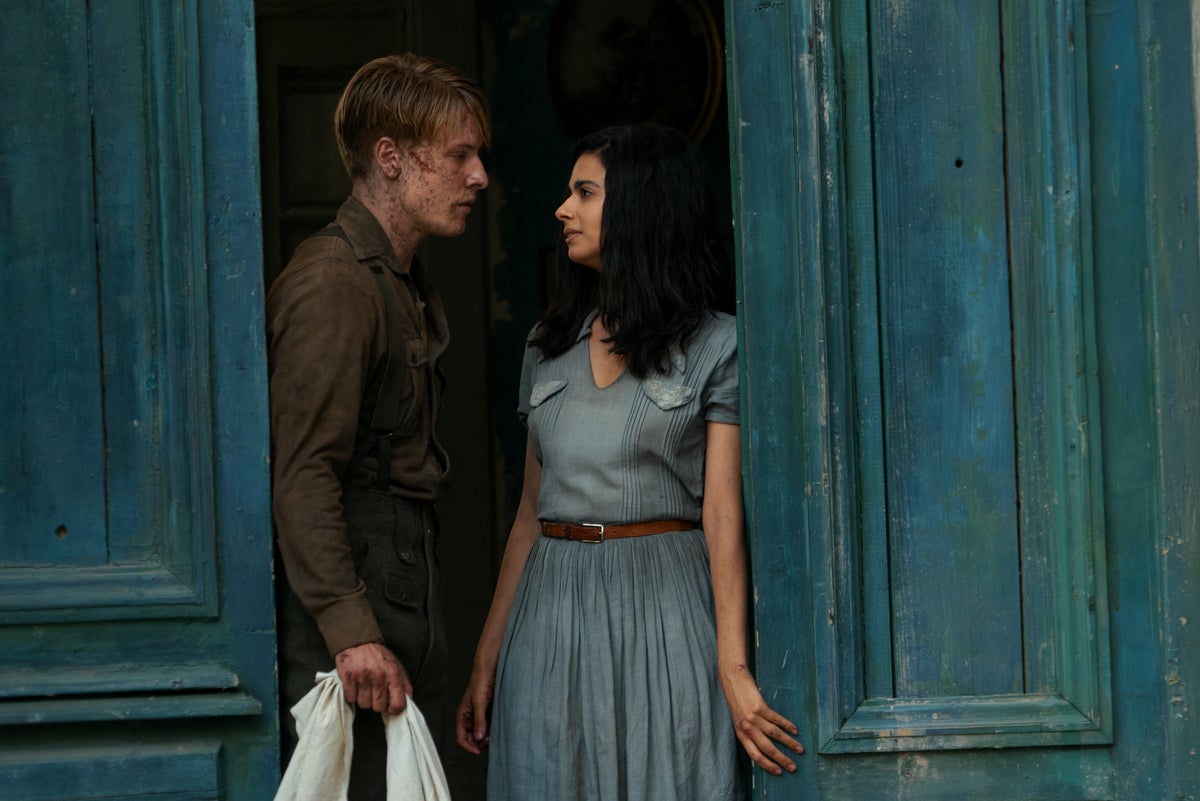
All the Light We Cannot See director Shawn Levy has explained his decision to change the ending of his TV adaptation of Anthony Doerr’s 2014 Pulitzer Prize-winning novel.
The four-episode Netflix war-drama, which was released last week, stars Dark breakout Louis Hofmann as young German soldier Werner and newcomer Aria Mia Loberti as Marie-Laure, a blind French girl.
Set during World War II, the series alternates between the perspectives of Werner and Marie-Laure, who miraculously meet across radio broadcast messages.
Major spoilers for the ending of Netflix’s ‘All The Light We Cannot See’ ahead
In the final scenes of the show, Marie-Laure and Werner’s physical paths collide when German military commander Reinhold von Rumpel (Lars Eidinger) finds Marie-Laure hiding and attempts to kill her. Werner, however, jumps in to fight Reinhold off before Marie-Laure shoots the commander dead.
The two share a dance together to the tune of Claude Debussy’s “Clair de Lune” until they hear the sound of American soldiers. Werner chooses to surrender, promising Marie-Laure that he will find her after the war is over.
In the book’s epilogue, Werner falls ill after being captured by American soldiers and is held as a prisoner of war. One night, in a state of delirium, he walks outside, steps on a hidden German landmine, and dies.
Louis Hofmann and Aria Mia Loberti in ‘All the Light We Cannot See’— (ATSUSHI NISHIJIMA/NETFLIX)
Speaking to Tudum in a recent interview about the decision to leave things in a “hopeful place”, executive producer Dan Levine said: “We talked about a lot of things to do with the ending changing, and we decided by just not showing the very end – where it jumps forward in time and there’s some sadness and tragedy – we didn’t have to show that.
“We loved the book and this is no judgment on the book,” Levine clarified, “but we wanted to end in a more hopeful place”.
Levy further defended the changes arguing that there was “nothing in the TV adaptation to suggest that the things in [Doerr’s] postscript don’t happen”.
“They could still happen, but we’re choosing not to look in that direction,” he added. “I remember reading the book, and it killed me. It really hurt me.”
He continued: “I always felt that this book, and hopefully this show, is this construct of inexorable intersection of destiny, that they’re slowly coming together.
“And I love this idea that they’re only together for less than an hour, but it’s the love of a lifetime, in some ways, in a single moment.”
The show’s alternative ending has left fans of the book divided. While some celebrated the change, saying that it saved them the heartache, others have expressed distaste.
“Oh boy, I did not like the ending to All the Light We Cannot See such a big change to it from the book. This is why I’m so leery watching adaptations,” one person tweeted.
The Independent’s TV critic Nick Hilton found that the “Second World War saga is a shonky, star-studded dud” in his two-star review.
All the Light We Cannot See is out on Netflix.

.png?w=600)





